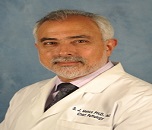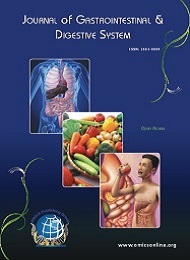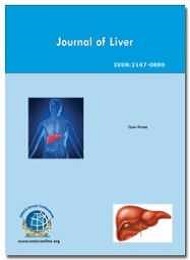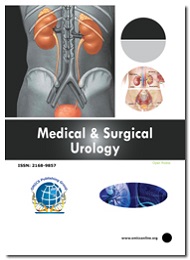Theme: New emerging trends and remedial insights to cure Pediatric Gastrointestinal diseases
Renowned Speakers
Pediatric Gastroenterology 2017

With the amalgamation of peerless speakers of Pediatric Gastroenterology 2016 ConferenceSeries Ltd is privileged to announce its “10th Annual World Congress on Pediatrics, Pediatric Gastroenterology and Nutrition” which will be held during March 23-25, 2017 in Orlando, Florida, USA. We cordially welcome all the eminent researchers, students, Nurses and delegates to take part in this upcoming pediatric Gastroenterology event to witness invaluable scientific discussions and contribute to the future innovations in the field of Pediatric Gastroenterology.
Pediatrics Gastroenterology 2017 conference will focus on the latest and exciting innovations in all the areas of Pediatric Gastroenterology research. This year’s annual congress highlights the theme, “New emerging trends and remedial insights to cure Pediatric Gastrointestinal diseases” which reflects the innovative progress in Pediatric Gastrointestinal disease research. The conference includes child health care workshops, symposiums, special keynote sessions conducted by eminent and renowned speakers who excel in the field of pediatric gastroenterology which includes the topics Pediatric and Neonatal Gastroenterology, Clinical Pediatric Gastric Problems, Pediatric Gastrointestinal Disease, Pediatric Gastrointestinal Cancer, Pediatric Gastrointestinal Diseases Diagnosis, Pediatric Gastrointestinal Surgery, Pediatric Gastrointestinal Drugs, Pediatric Hepatology, Pediatric Nutrition, Case Reports etc. This International Pediatric Gastroenterology Conference also encourages the active participation of young student researchers as we are hosting Poster Award Competition and Young research Forum at the conference venue.
The global market of pediatric gastroenterology was valued at USD 7,281.6 Million in 2014. This market is expected to grow at a CAGR of 5.8% during the forecast period (2015–2020) to reach USD 10,209.4 Million by 2020. The growth in this market is mainly driven by the increasing prevalence of pediatric diseases owing to the rising population; increasing use of products in healthcare; and technological improvements in modern techniques. However, the presence of stringent regulations for process approval and medication errors associated with diagnosis may restrain the growth of the market during the forecast period. ConferenceSeries Ltd believes that professionally-oriented education in pediatric gastrointestinal medicine is essential in the training of clinicians and academicians and organizes Pediatric Gastroenterology conference in Orlando, USA next year which will provide the future leadership in this key area for global health.
ConferenceSeries Ltd organizes a conference series of 1000+ Global Events inclusive of 300+ Conferences, 500+ Upcoming and Previous Symposiums and Workshops in USA, Europe & Asia with support from 1000 more scientific societies and publishes 700+ Open access journals which contains over 30000 eminent personalities, reputed scientists as editorial board members.
Why to attend?
With members from around the world focused on learning about Pediatric Gastroenterology and its advances in making a better health; this is your best opportunity to reach the largest assemblage of participants from the Pediatric Gastroenterology community. Conduct presentations, distribute information, meet with current and potential scientists, make a splash with new drug developments, and receive name recognition at esteemed event. World-renowned speakers, the most recent techniques, developments, and the newest updates in Pediatric Gastroenterology are the hallmarks of this conference.
Target Audience:
- Pediatricians
- Pediatric Gastroenterologists
- Physicians with an expertise in all the field of pediatrics
- Pediatric Hepatologist
- Pediatric Nutritionists and Dietitians
- Pediatric Gastroenterology, Hepotology, Nutrition Faculty
- Pediatric gastroenterologist practitioners and trainees
- Subspecialty fellows in pediatric gastroenterology
- Physician assistants
- Nurses specializing in pediatric gastroenterology
- Business Entrepreneurs
- Manufacturing Medical Devices Companies
ConferenceSeries Ltd invites all the participants from all over the world to attend '10th Annual World Congress on Pediatrics, Pediatric Gastroenterology and Nutrition' during March 23-25, 2017 in Orlando, Florida, USA which includes prompt keynote presentations, Oral talks, Poster presentations and Exhibitions.
Pediatric Gastroenterology 2017 is a global platform to discuss and learn about Pediatrics and their health, Pediatric and Neonatal Gastroenterology, Clinical Pediatric Gastric Problems:, Pediatric Gastrointestinal Disease, Pediatric Gastrointestinal Cancer, Pediatric Gastrointestinal Diseases Diagnosis, Pediatric Gastrointestinal Surgery, Pediatric Gastrointestinal Drugs, Pediatric Hepatology, Pediatric Nutrition, Pediatric Case Reports etc.
Track 1: General Pediatrics
Pediatrics and Neonatology is to help Pediatricians keep abreast of the latest development in Pediatric and neonatal medicine. Neonatology is a subspecialty of pediatrics that consists of the medical care of newborn infants, especially the ill or premature new born infant. It is a hospital-based specialty, and is usually practiced in neonatal intensive care units (NICUs). The principal patients of neonatologists are newborn infants who are ill or requiring special medical care due to prematurity, low birth weight, intrauterine growth retardation, congenital malformations (birth defects), sepsis, pulmonary hypoplasia or birth asphyxias.
Related Conferences:
Pediatrics Conferences September 14-16, 2016 Amsterdam, The Netherlands; Pediatric Surgery Conferences September 14-16, 2016 Amsterdam, Netherlands; Pediatric Dermatology Conferences October 10-11, 2016 Manchester, UK; Neonatology Conferences November 14-16, 2016 Valencia, Spain; Neonatal Conferences November 14-16, 2016 Valencia, Spain; Pediatric Neurology Conference November 14-16, 2016 Valencia, Spain; 90th Annual Meeting of the Canadian Pediatric Society Jun 22-25 2016 Canada; 28th International Pediatric Association Congress of Pediatrics Aug 17-22 2016, Canada; 2016 American Academy of Pediatrics National Conference & Exhibition October 22-25 2016, USA; 15th Asian Pacific Congress of Pediatrics January 21-24 2016, India; 6th Congress of the European Academy of Pediatric Societies October 21-25 2016, Switzerland.
Track 2: Pediatric and Neonatal Gastroenterology
The aim of the study of pediatric gastroenterology is to reduce infant and child rate of deaths, control the spread of infectious disease, promote healthy lifestyles for a long disease-free life and help ease the problems of children and adolescents. It can be acknowledged that this can be reached by learning the major and primary subject on gastroenterology. It includes the treatments involved for the betterment of gastrointestinal health in children.
Gastrointestinal Tract is an organ system responsible for transporting and digesting foodstuffs, absorbing nutrients, and expelling waste. Gastrointestinal motility is defined by the movements of the digestive system, and the transit of the contents within it. When nerves or muscles in any portion of the digestive tract do not function with their normal strength and coordination, a person develops symptoms related to motility problems.
Related Conference: Pediatrics Conferences September 14-16, 2016 Amsterdam, The Netherlands; Pediatric Surgery Conferences September 14-16, 2016 Amsterdam, Netherlands; Pediatric Dermatology ConferencesOctober 10-11, 2016 Manchester, UK; Neonatology Conferences November 14-16, 2016 Valencia, Spain;Neonatal Conferences November 14-16, 2016 Valencia, Spain; Pediatric Neurology Conference November 14-16, 2016 Valencia, Spain; 28th International Pediatric Association Congress of Pediatrics Aug 17-22 2016,Canada; 2016 American Academy of Pediatrics National Conference & ExhibitionOctober 22-25 2016, USA; 15th Asian Pacific Congress of Pediatrics January 21-24 2016, India; 6th Congress of the European Academy of Pediatric Societies October 21-25 2016, Switzerland.
Track 3: Clinical Pediatric Gastric Problems
The gastrointestinal tract (GIT) arises initially during the process of gastrulation from the endoderm of the trilaminar embryo (week 3) and extends from the buccopharyngeal membrane to the cloacal membrane. The tract and associated organs later have contributions from all the germ cell layers. Digestion is the breakdown of food into smaller particles or individual nutrients.
Obesity is the most prevalent nutritional disorder among children and adolescents in the United States. Approximately 21-24% of American children and adolescents are overweight, and another 16-18% is obese; the prevalence of obesity is highest among specific ethnic groups. Chronic abdominal pain (CAP) persists for more than 3 mo either continuously or intermittently. Intermittent pain may be referred to as recurrent abdominal pain (RAP). CAP occurs any time after 5 year of age. Up to 10% of children require evaluation for RAP.
Related Conference: Pediatrics Conferences September 14-16, 2016 Amsterdam, The Netherlands; Pediatric Surgery Conferences September 14-16, 2016 Amsterdam, Netherlands; Pediatric Dermatology Conferences October 10-11, 2016 Manchester, UK; Neonatology Conferences November 14-16, 2016 Valencia, Spain; Neonatal Conferences November 14-16, 2016 Valencia, Spain; Pediatric Neurology Conference November 14-16, 2016 Valencia, Spain; 28th International Pediatric Association Congress of Pediatrics Aug 17-22 2016,Canada; 2016 American Academy of Pediatrics National Conference & Exhibition October 22-25 2016, USA; 15th Asian Pacific Congress of Pediatrics January 21-24 2016, India; 6th Congress of the European Academy of Pediatric Societies October 21-25 2016, Switzerland.
Track 4: Pediatric Gastrointestinal Disease
Gastrointestinal defects affect any part of the gastrointestinal tract. This includes the oesophagus that connects mouth with stomach, and stomach to intestines. Food travels through the tract after eating. Barrett's oesophagus is a condition where the cells of the oesophagus (gullet) grow abnormally. The biliary tract refers to the liver, gall bladder and bile ducts, and how they work together to make, store and secrete bile. Biliary disease often presents with upper abdominal pain. The pain quality is a penetrating aching or tightness, typically severe and located in the epigastrium.
Appendicitis is inflammation of the appendix. Appendicitis commonly presents with right lower abdominal pain, nausea, vomiting, and decreased appetite. Rumination syndrome, or Merycism, is a chronic motility disorder characterized by effortless regurgitation of most meals following consumption, due to the involuntary contraction of the muscles around the abdomen. Cystic fibrosis (CF) is a genetic disorder that affects mostly the lungs but also the pancreas, liver, kidneys, and intestine.
Related Conference: Pediatrics Conferences September 14-16, 2016 Amsterdam, The Netherlands; Pediatric Surgery Conferences September 14-16, 2016 Amsterdam, Netherlands; Pediatric Dermatology Conferences October 10-11, 2016 Manchester, UK; NeonatologyConferences November 14-16, 2016 Valencia, Spain; Neonatal Conferences November 14-16, 2016 Valencia, Spain; Pediatric Neurology Conference November 14-16, 2016 Valencia, Spain; 28th International Pediatric Association Congress of Pediatrics Aug 17-22 2016,Canada; 2016 American Academy of Pediatrics National Conference & Exhibition October 22-25 2016, USA; 15th Asian Pacific Congress of Pediatrics January 21-24 2016, India; 6th Congress of the European Academy of Pediatric Societies October 21-25 2016, Switzerland.
Track 5: Pediatric Gastrointestinal Cancer
Surgeons continue their efforts to improve their techniques to operate colorectal cancers. They now have a better understanding of what makes colorectal surgery more likely to be successful, such as making sure enough lymph nodes are removed during the operation. Esophageal cancer usually begins in the cells that line the inside of the oesophagus. Pancreatic cancer begins in the tissues of your pancreas an organ in your abdomen that lies horizontally behind the lower part of your stomach. Colorectal cancer is cancer that starts in the colon or rectum. The colon and the rectum are parts of the large intestine, which is the lower part of the body’s digestive system
Pancreatic cancer is aggressive with few symptoms until the cancer is advanced. Symptoms may include abdominal pain, weight loss, diarrhoea, and jaundice. Treatments include surgery, chemotherapy, and radiation. Gallbladder cancer is a relatively uncommon cancer. If it is diagnosed early enough, it can be cured by removing the gallbladder, part of the liver and associated lymph nodes. Most often it is found after symptoms such as abdominal pain, jaundice and vomiting occur, and it has spread to other organs such as the liver.
Related Conferences: Pediatrics Conferences September 14-16, 2016 Amsterdam, The Netherlands; Pediatric Surgery Conferences September 14-16, 2016 Amsterdam, Netherlands; Pediatric Dermatology Conferences October 10-11, 2016 Manchester, UK; Neonatology Conferences November 14-16, 2016 Valencia, Spain; Neonatal Conferences November 14-16, 2016 Valencia, Spain; Pediatric Neurology Conference November 14-16, 2016 Valencia, Spain; SIOPE 4th Paediatric Oncology Conference January 20–21 2016, Belgium; 40th Annual Association of Pediatric Oncology Social Work Conference April 13-15 2016, Rhode Island; 90th Annual Meeting of the Canadian Pediatric Society Jun 22-25 2016 Canada; 28th International Pediatric Association Congress of Pediatrics Aug 17-22 2016, Canada; 2016 American Academy of Pediatrics National Conference & Exhibition October 22-25 2016, USA.
Track 6: Pediatric Gastrointestinal Diseases Diagnosis
Barium enema: lower bowel examination, barium enema is an X-ray test that allows doctor to examine the lower part of bowel. Barium swallow and barium meal tests: Both barium swallow and barium meal test involves a series of X-rays being taken of the digestive tract. Cholangiography: Cholangiography is an examination that uses X-rays and contrast medium (dye) to view bile ducts. Cholecystography: Cholecystography is a procedure that helps to diagnose gallstones using X-rays and contrast medium to show up the gallbladder and bile duct. Coeliac disease: tests, find out about the tests used to diagnose coeliac disease.
Endoscopy is a nonsurgical procedure used to examine a person's digestive tract. Oral cholecystography is a procedure used to visualize the gallbladder by administering, by mouth, a radiopaque contrast agent that is excreted by the liver. This excreted material will collect in the gallbladder, where reabsorption of water concentrates the excreted contrast.
Related Conference: Pediatrics Conferences September 14-16, 2016 Amsterdam, The Netherlands; Pediatric Surgery Conferences September 14-16, 2016 Amsterdam, Netherlands; Pediatric Dermatology Conferences October 10-11, 2016 Manchester, UK; Neonatology Conferences November 14-16, 2016 Valencia, Spain; Neonatal Conferences November 14-16, 2016 Valencia, Spain; Pediatric Neurology Conference November 14-16, 2016 Valencia, Spain; 28th International Pediatric Association Congress of Pediatrics Aug 17-22 2016,Canada; 2016 American Academy of Pediatrics National Conference & Exhibition October 22-25 2016, USA; 15th Asian Pacific Congress of Pediatrics January 21-24 2016, India; 6th Congress of the European Academy of Pediatric Societies October 21-25 2016, Switzerland.
Track 7: Pediatric Gastrointestinal Surgery
Intussusception is the most common abdominal emergency affecting children under 2 years old. It happens when one portion of the bowel slides into the next, much like the pieces of a telescope. A hydrocele is a collection of fluid within the processus vaginalis (PV) that produces swelling in the inguinal region or scrotum. An inguinal hernia occurs when abdominal organs protrude into the inguinal canal or scrotum. Hirschsprung’s disease is a condition that affects the large intestine (colon) and causes problems with passing stool.
Intussusception is the most common abdominal emergency affecting children under 2 years old. It happens when one portion of the bowel slides into the next. An inguinal hernia occurs in the groin area when fatty or intestinal tissues push through the inguinal canal. The inguinal canal resides at the base of the abdomen. Atresia is a condition in which an orifice or passage in the body is closed or absent. Examples of atresia include: Imperforate anus, malformation of the opening between the rectum and anus.
Related Conference: Pediatrics Conferences September 14-16, 2016 Amsterdam, The Netherlands; Pediatric Surgery Conferences September 14-16, 2016 Amsterdam, Netherlands; Pediatric Dermatology Conferences October 10-11, 2016 Manchester, UK; Neonatology Conferences November 14-16, 2016 Valencia, Spain; Neonatal Conferences November 14-16, 2016 Valencia, Spain; Pediatric Neurology Conference November 14-16, 2016 Valencia, Spain; 28th International Pediatric Association Congress of Pediatrics Aug 17-22 2016,Canada; 2016 American Academy of Pediatrics National Conference & Exhibition October 22-25 2016, USA; 15th Asian Pacific Congress of Pediatrics January 21-24 2016, India; 6th Congress of the European Academy of Pediatric Societies October 21-25 2016, Switzerland.
Track 8: Pediatric Gastrointestinal Drugs
Proton pump inhibitors reduce the production of acid in the stomach. This leaves little acid in the stomach juice so that if stomach juice backs up into the esophagus, it is less irritating. This allows the esophagus to heal. Antacid alkaline suspension is a drug combination that neutralizes gastric acidity and increases the pH of the stomach and duodenal bulb. Aluminium ions inhibit smooth muscle contraction and gastric emptying. Magnesium-aluminium antacid mixtures are used to avoid changes in bowel function. Gastric acid suppressants, in the form of histamine-2 receptor antagonists (H2RAs), have transformed the management of dyspepsia, peptic ulceration and gastro-oesophageal reflux disease.
Proton-pump inhibitors (PPIs) are a group of drugs whose main action is a pronounced and long-lasting reduction of gastric acid production. Gastric acid suppressants, in the form of histamine-2 receptor antagonists (H2RAs) and subsequently proton pump inhibitors (PPIs), have transformed the management of dyspepsia, peptic ulceration and gastro-oesophageal reflux disease. PPIs are now among the most commonly prescribed medications worldwide.
Related Conference: Pediatrics Conferences September 14-16, 2016 Amsterdam, The Netherlands; Pediatric Surgery Conferences September 14-16, 2016 Amsterdam, Netherlands; Pediatric Dermatology Conferences October 10-11, 2016 Manchester, UK; Neonatology Conferences November 14-16, 2016 Valencia, Spain; Neonatal Conferences November 14-16, 2016 Valencia, Spain; Pediatric Neurology Conference November 14-16, 2016 Valencia, Spain; 28th International Pediatric Association Congress of Pediatrics Aug 17-22 2016,Canada; 2016 American Academy of Pediatrics National Conference & Exhibition October 22-25 2016, USA; 15th Asian Pacific Congress of Pediatrics January 21-24 2016, India; 6th Congress of the European Academy of Pediatric Societies October 21-25 2016, Switzerland.
Track 9: Pediatric Hepatology
Hepatology is a branch of medicine concerned with the study, prevention, diagnosis and management of diseases that affect the liver, gallbladder, biliary tree and pancreas. The term is derived from the Greek words hepatikos and logia, which mean liver and study.
Wilson's disease or hepatolenticular degeneration is an autosomal recessive genetic disorder in which copper accumulates in tissues; this manifests as neurological or psychiatric symptoms and liver disease. Liver tumors or hepatic tumors are tumors or growths on or in the liver. Several distinct types of tumors can develop in the liver because the liver is made up of various cell types. These growths can be benign or malignant (cancerous).
Relevant Conferences: Pediatrics Conferences September 14-16, 2016 Amsterdam, The Netherlands; Pediatric Surgery Conferences September 14-16, 2016 Amsterdam, Netherlands; Pediatric Dermatology Conferences October 10-11, 2016 Manchester, UK; Neonatology Conferences November 14-16, 2016 Valencia, Spain; Neonatal Conferences November 14-16, 2016 Valencia, Spain; Pediatric Neurology Conference November 14-16, 2016 Valencia, Spain; 31st Annual New Treatments in Chronic Liver Disease, March 19-20, 2016, La Jolla, USA; AHPBA 2017 Annual Meeting, March 29-April 2, 2017, Miami, Florida; Mayo Clinic Gastroenterology and Hepatology, February 25-28, 2016, Arizona, USA; 2016 Gastrointestinal Cancers Symposium, January 21-23, 2016, San Francisco, USA.
Track 10: Nutrition
Nutrition is the maintenance of a proper well-balanced diet consisting of the essential nutrients and the adequate caloric intake necessary to promote growth and sustain the physiologic requirements at the various stages of a child's development. Pediatric nutritional needs vary considerably with age, level of activity, and environmental conditions and they are directly related to the rate of growth. Breast Feeding has important ingredients that are not found in any infant formula, to build the baby’s immune system. Pediatric nutrition must consist of essential Vitamins and Minerals which help for the growth and development. Proteins are the basic units required mainly for the construction of the body muscles and in all the metabolic activities of the body. To increase the calcium levels intake of dairy products are needed.
A food allergy is an abnormal immune response to food. The signs and symptoms may range from mild to severe. They may include itchiness, swelling of the tongue, vomiting, diarrhoea, hives, trouble breathing, or low blood pressure. This typically occurs within minutes to several hours of exposure. Increases in the incidence and prevalence of anorexia nervosa (AN), bulimia nervosa (BN), and other eating disorders in children and adolescents make it critically important that pediatricians be familiar with early detection and appropriate management of these disorders. During the growing years between infancy and adolescence, adequate nutrition is of utmost importance. Child’s diet does not only support their normal growth and development, but also supports their immune system, and develops lifelong eating habits. Although dietary needs, appetites, and tastes varies widely throughout childhood, it is important to consistently provide the child with healthy options from all of the major food groups.
Related conferences: Pediatrics Conferences September 14-16, 2016 Amsterdam, The Netherlands; Pediatric Surgery Conferences September 14-16, 2016 Amsterdam, Netherlands; Pediatric Dermatology Conferences October 10-11, 2016 Manchester, UK; Neonatology Conferences November 14-16, 2016 Valencia, Spain; Neonatal Conferences November 14-16, 2016 Valencia, Spain; Pediatric Neurology Conference November 14-16, 2016 Valencia, Spain; Latin American Congress of Gastroenterology, Hepatology and Pediatric Nutrition 18–21 November 2015 Lima, Peru; 3rd International Conference on Nutrition and Growth (N&G 2016) 17–19 March 2016 Vienna, Austria; 2nd Foetal Medicine, Paediatric Gastro, Hepatology & Nutrition Conference 25–27 February 2016 Abu Dhabi, United Arab; Emirate Pediatrics 2040: Emerging Trends and Innovations for the Next 25 Years 6–9 January 2016 Dana Point, United States; 5th Global Congress for Consensus in Pediatrics and Child Health 3–6 March 2016 Xi'an, China; 3rd World Congress on Controversies in Pediatrics (CoPedia) 31 March – 3 April 2016 Barcelona, Spain.
Track 11: Child Nutrition
A healthy diet helps children grow and learn. It also helps prevent obesity and weight-related diseases, such as diabetes. The best nutritious diet for children includes: fruits and vegetables, healthy sources of protein, such as lean meat, nuts, and eggs, whole-grain breads and cereals due to rich fibre content, Broil, grill, or steam foods and water or milk instead of sugary fruit drinks and sodas.
Nutrition is the science that interprets the interaction of nutrients and other substances in food (e.g. phytonutrients, anthocyanins, tannins, etc.) in relation to maintenance, growth, reproduction, health and disease of an organism. It includes Food products and the real nutritive value, Nutrition & metabolism, Nutritional epidemiology, Implementing Nutritional Care. To provide exposure to technologies, government/institutional assistance, increase international tie-ups and to provide knowledge about recent trends in Food & beverages sector is the aim of this event.
Related conferences: Pediatrics Conferences September 14-16, 2016 Amsterdam, The Netherlands; Pediatric Surgery Conferences September 14-16, 2016 Amsterdam, Netherlands; Pediatric Dermatology Conferences October 10-11, 2016 Manchester, UK; Neonatology Conferences November 14-16, 2016 Valencia, Spain; Neonatal Conferences November 14-16, 2016 Valencia, Spain; Pediatric Neurology Conference November 14-16, 2016 Valencia, Spain; Latin American Congress of Gastroenterology, Hepatology and Pediatric Nutrition 18–21 November 2015 Lima, Peru; 3rd International Conference on Nutrition and Growth (N&G 2016) 17–19 March 2016 Vienna, Austria; 2nd Foetal Medicine, Paediatric Gastro, Hepatology & Nutrition Conference 25–27 February 2016 Abu Dhabi, United Arab; Emirate Pediatrics 2040: Emerging Trends and Innovations for the Next 25 Years 6–9 January 2016 Dana Point, United States; 5th Global Congress for Consensus in Pediatrics and Child Health 3–6 March 2016 Xi'an, China; 3rd World Congress on Controversies in Pediatrics (CoPedia) 31 March – 3 April 2016 Barcelona, Spain.
Track 12: Child Development
Child development involves the biological, psychological and emotional changes that occur in human beings between birth and the end of adolescence, as the individual progresses from dependency to increasing autonomy. It is a continuous process with a predictable sequence yet having a unique course for every child.
A major problem in childhood is obesity. In America, the number of obese children is rapidly increasing. Childhood obesity is caused by a variety of factors. The main causes of childhood obesity are "lifestyle issues-too little activity and too many calories. Child obesity can cause major problems with a child’s development. In order for a child to develop successfully, he or she must grow up in a positive environment with good health and academics. If a child becomes obese, there will be consequences such as: depression, low self-esteem, eating disorders, medical problems, and so on. These issues of childhood obesity can be slowed, if society focuses on the causes. If parents enforce a healthy lifestyle at home with physical activity and proper dieting, many issues with obesity could be avoided.
Relevant Conferences: Pediatrics Conferences September 14-16, 2016 Amsterdam, The Netherlands; Pediatric Surgery Conferences September 14-16, 2016 Amsterdam, Netherlands; Pediatric Dermatology Conferences October 10-11, 2016 Manchester, UK; Neonatology Conferences November 14-16, 2016 Valencia, Spain; Neonatal Conferences November 14-16, 2016 Valencia, Spain; Pediatric Neurology Conference November 14-16, 2016 Valencia, Spain; 31st Annual New Treatments in Chronic Liver Disease, March 19-20, 2016, La Jolla, USA; AHPBA 2017 Annual Meeting, March 29-April 2, 2017, Miami, Florida; Mayo Clinic Gastroenterology and Hepatology, February 25-28, 2016, Arizona, USA; 2016 Gastrointestinal Cancers Symposium, January 21-23, 2016, San Francisco, USA.
Track 13: Food Industry
Food Industry is a complex, global collective of diverse businesses that supply most of the food consumed by the world population. Only subsistence farmers, those who survive on what they grow, and hunter-gatherers can be considered outside of the scope of the modern food industry.
The novel technologies in Food Science alter the Food Sector to reinforce the standard of the eatables and drinks. New food stuffs embrace Biotechnology primarily based strategies food product e.g. genetically modified food, Organic crops and food stuffs, supermolecule based mostly diet. Hence, the food that we consume every day is the result of intensive food analysis, a scientific investigation into a spread of foods’ properties and compositions.
Relevant Conferences: International Conference on Food Preservation & Packaging, May 18-19, 2017 Munich, Germany, International Conference on Food Safety and Regulatory Measures, June 5-7, 2017 Milan, Italy, Nutrition Conferences Europe June 29- July 01, 2017 Madrid, Spain, International Conference on Food Microbiology, September 28-30, 2017 Madrid, Spain, International conference on Food Security and Sustainability, June 26-28, 2017 San Diego, USA, Gluten-Free Food Products and Beverages, 1-Jun 2017, Alberta, Canada, AOCS Annual Meeting Salt Lake City, May 1-4, 2017, Utah, USA, Conference on Food Properties, May 29 - June 2, 2017, Bangkok, Thailand, PackPlus South 2017, Mar 02-05, 2017, Telangana, India, Food & Beverage Plastic Packaging, March 16-17, 2017, Berlin, Germany.
Track 14: Vitamins
A vitamin is an organic compound and a vital nutrient that an organism requires in limited amounts. An organic chemical compound (or related set of compounds) is called a vitamin when the organism cannot synthesize the compound in sufficient quantities, and it must be obtained through the diet; thus, the term "vitamin" is conditional upon the circumstances and the particular organism.
Vitamins have diverse biochemical functions. Some, such as vitamin D, have hormone-like functions as regulators of mineral metabolism, or regulators of cell and tissue growth and differentiation (such as some forms of vitamin A). Others function as antioxidants (e.g., vitamin E and sometimes vitamin C). The largest number of vitamins, the B complex vitamins, functions as enzyme cofactors (coenzymes) or the precursors for them; coenzymes help enzymes in their work as catalysts in metabolism.
Relevant Conferences: International Conference on Food Preservation & Packaging, May 18-19, 2017 Munich, Germany, International Conference on Food Safety and Regulatory Measures, June 5-7, 2017 Milan, Italy, Nutrition Conferences Europe June 29- July 01, 2017 Madrid, Spain, International Conference on Food Microbiology, September 28-30, 2017 Madrid, Spain, International conference on Food Security and Sustainability, June 26-28, 2017 San Diego, USA, Gluten-Free Food Products and Beverages, 1-Jun 2017, Alberta, Canada, AOCS Annual Meeting Salt Lake City, May 1-4, 2017, Utah, USA, Conference on Food Properties, May 29 - June 2, 2017, Bangkok, Thailand, PackPlus South 2017, Mar 02-05, 2017, Telangana, India, Food & Beverage Plastic Packaging, March 16-17, 2017, Berlin, Germany.
Track 15: Pediatric Case Reports
A Case Report is a detailed report of the symptoms, signs, diagnosis, treatment, and follow-up of an individual patient. Case reports contain a demographic profile of the patient and usually describes an unusual or novel occurrence. Some case reports also contain a literature review of other reported cases.
The session includes discussion on Pediatric Gastroenterology, Neonatal Gastroenterology, Pediatric Gastrointestinal disorders, Pediatric hepatology, Pediatric Nutrition and Pediatric Surgery.
Relevant Conferences: Pediatrics Conferences September 14-16, 2016 Amsterdam, The Netherlands; Pediatric Surgery Conferences September 14-16, 2016 Amsterdam, Netherlands; Pediatric Dermatology Conferences October 10-11, 2016 Manchester, UK; Neonatology Conferences November 14-16, 2016 Valencia, Spain; Neonatal Conferences November 14-16, 2016 Valencia, Spain; Pediatric Neurology Conference November 14-16, 2016 Valencia, Spain; 31st Annual New Treatments in Chronic Liver Disease, March 19-20, 2016, La Jolla, USA; AHPBA 2017 Annual Meeting, March 29-April 2, 2017, Miami, Florida; Mayo Clinic Gastroenterology and Hepatology, February 25-28, 2016, Arizona, USA; 2016 Gastrointestinal Cancers Symposium, January 21-23, 2016, San Francisco, USA.
Summary: Pediatric Gastroenterology 2017 welcomes attendees, presenters, and exhibitors from all over the world to Orlando, USA. We are delighted to invite you all to attend and register for the “10th Annual World Congress on Pediatrics, Pediatric Gastroenterology and Nutrition (Pediatric Gastroenterology 2017)” which is going to be held during March 23-25, 2017 at Orlando, Florida, USA. The organizing committee is gearing up for an exciting and informative conference program including plenary lectures, symposia, workshops on a variety of topics, poster presentations and various programs for participants from all over the world. We invite you to join us at the Pediatric Gastroenterology 2017, where you will be sure to have a meaningful experience with scholars from around the world. All the members of Pediatric Gastroenterology 2017 organizing committee look forward to meet you at Orlando, Florida, USA
For more details please visit: http://pediatricgastroenterology.conferenceseries.com/
Conference Highlights:
- Pediatrics
- Clinical Pediatrics
- Neonatology and Perinatology
- General Pediatrics
- Pediatric and Neonatal Gastroenterology
- Clinical Pediatric Gastric Problems
- Pediatric Gastrointestinal Disease
- Pediatric Gastrointestinal Cancer
- Pediatric Gastrointestinal Diseases Diagnosis
- Pediatric Gastrointestinal Surgery
- Pediatric Gastrointestinal Drugs
- Pediatric Hepatology
- Pediatric Nutrition
- Pediatrics Case Reports
Importance and scope
Most aspects of business depend on successful marketing. The overall marketing umbrella covers advertising, public relations, promotions and sales. Marketing is a process by which a product or service is introduced and promoted to potential customers. Pediatric Gastroenterology 2017 aims to bring together leading academic scientists, researchers and research scholars to exchange and share their experiences and research results about all aspects of Pediatric Gastroenterology. It also provides the chance for researchers, practitioners and educators to present and discuss the most recent innovations, trends, and concerns, practical challenges encountered and the solutions adopted in the fields of Pediatric Gastroenterology.
The Specialty Section Pediatric Gastroenterology focuses upon the disorders of the gastrointestinal tract in infants, children and adolescents. The section concerned with all aspects of gastroenterology in children. These include on the normal development and maturation of the gut, or those focusing upon specific disorders of the gut or liver. The impact of gut disorders upon nutrition is a further theme. Basic science, clinical and translational researches are all encouraged. Pediatric gastroenterologists are specially trained to perform diagnostic tests of a child’s digestive system. Special instruments, such as endoscopes, are used to examine the inside of the digestive tract or obtain tissue samples (biopsies). Endoscopic procedures pediatric gastroenterologists perform include esophagogastroduodenoscopy and colonoscopy. Pediatric gastroenterologists also treat bleeding, swallowing problems, or other problems encountered in the intestines. They have extensive expertise in managing nutritional problems in children, including placement and management of feeding tubes and intravenous nutrition and diagnosing and treating infants, children, and teens with liver disease. Our aim is to promote and highlight key aspects of pediatric gastroenterology and hepatology, with the ultimate goal of developing new medical treatments and therapeutics for young patients affected by disorders of the gastrointestinal tract.
Why Orlando?
It is being acknowledged that the leading problems for infants and children in Orlando was birth defects; prematurity/low birth weight; sudden infant death syndrome; maternal complications of pregnancy and respiratory distress syndrome.
In Orlando during 2010-2015 (average), 82 infants died before reaching their first birthday, an infant mortality rate of 6.2 per 1,000 live births. In Orlando in 2011, the rate of perinatal mortality was 4.3 per 1,000 live births and fetal deaths which have reached to 7.0 per 1,000 infant births by the year 2015. Reflecting this imperative Pediatrics-2017 aims to educate pediatricians and achieve the goal of reducing infant mortality rate.
Why to attend???
Meet Your Target Market With members from around the world focused on learning about Pediatric Gastroenterology; this is your single best opportunity to reach the largest assemblage of participants from the Pediatric Gastroenterology community. Conduct demonstrations, distribute information, meet with current and potential customers, make a splash with a new product line, and receive name recognition at this 3-day event. World-renowned speakers, the most recent techniques, tactics, and the newest updates in Pediatric Gastroenterology fields are hallmarks of this conference.
Market Report for growth in the field of Pediatric Gastroenterology.
The global market was valued at USD 7,281.6 Million in 2014. This market is expected to grow at a CAGR of 5.8% during the forecast period (2015–2020) to reach USD 10,209.4 Million by 2020. The growth in this market is mainly driven by the increasing prevalence of pediatric diseases owing to the rising population; increasing use of products in healthcare; and technological improvements in modern techniques. However, the presence of stringent regulations for process approval and medication errors associated with diagnosis may restrain the growth of the market during the forecast period.
A Unique Opportunity for Advertisers and Sponsors at this International event:
http://pediatricgastroenterology.conferenceseries.com/sponsors.php
Major Analysis of Pediatric Gastroenterology Conference

Target Audience:
Pediatric Gastroenterology 2017 Targets, CEO’s, Directors, Scientists, Professors, Students of all Pediatrics & Pharmaceutical companies, Universities and colleges globally.
Target Audience:
Industry 20%
Academia 70%
Others 10%
Orlando
- Arnold Palmer Hospital for Children
- Florida Hospital for Children
- Howard Phillips Center for Children & Families
- Nemours Children's Specialty Care, Orlando
- Nemours Children's Hospital
- Florida Children's Hospital
United States of America
- Boston Children's Hospital, Boston, MA
- Children's Hospital of Pittsburgh of UPMC, Pittsburgh, PA
- Children's Hospital Colorado, Aurora, CO
- Texas Children’s Hospital, Houstan, Texas
- Children’s Memorial Hospital, Chicago, IL
- Shriners Hospitals for Children Chicago, IL
- Ann and Robert H. Lurie Children's Hospital of Chicago, IL
- University of Chicago Medicine Comer Children's Hospital, IL
- La Rabida Children's Hospital, IL
- Rush Children's Hospital, IL
- Children’s Hospital of Denver, Colorado
- Children’s Hospital Los Angeles, California
- The children hospital of Chicago, PA
- St. Christopher's Hospital for Children, Chicago, PA
- Nemours/ Alfred I. duPont Hospital for children Chicago, PA
- Johns Hopkins Hospital, Baltimore, Maryland
- Children’s Healthcare of Atlanta, Georgia
- New York-Presbyterian Morgan Stabley-Komansky Children’s Hospital
- UCSF Medical Centre, California
- Vanderbilt University Medical Centre
- Massachusetts General Hospital, Boston, Massachusetts
- Cleveland clinic, Ohio
Major Gastroenterology Associations around the Globe
- American Gastroenterological Association
- United European Gastroenterology
- Canadian Association of Gastroenterology (CAG)
- European Association for Gastroenterology, Endoscopy and Nutrition
- The Japanese Gastroenterological Association (JGA)
- IGA - Israel Gastroenterology Association
- Association of Gastroenterologists of Bosnia nad Herzegovina
- Bulgarian Association of Surgeons and Gastroenterologists
- European Crohns and Colitis Organisation
- Gastroenterohepatology Association of Montenegro - GAM
- The Australian and New Zealand Gastric and Oesophageal Surgery Association (ANZGOSA)
- Asian Pacific Association of Gastroenterology (APAGE)
- Ukrainian Association of Endoscopy.
Major Gastroenterology Societies around the Globe
- Gastroenterological Society of Australia
- British society of Gastroenterology
- European Society of Gastrointestinal Endoscopy (ESGE)
- European Society for Paediatric Gastroenterology Hepatology and Nutrition (ESPGHAN)
- European society of Neuogastroenterology & Motility
- American Society for Gastrointestinal Endoscopy
- British society for Pediatric Gastroenterology, Hepatology and Nutrition
- North American society for Pediatric Gastroenterology, Hepatology and Nutrition
- Russian Society for Digestive Endoscopy
- Japanese Society of Gastroenterology
- Hong Kong Society of Gastroenterology
- Hong Kong Society of Digestive Endoscopy
- Emirates Gastroenterology & Hepatology Society
- Belgian Society of Gastroinestinal Endoscopy
- Cyprus Society of Gastroenterology
- Czech Gastroenterological Society
- Danish Society of Gastroenterology and Hepatology
- Korean Society of Gastroenterology
- Ohio Gastroenterology Society
Conference Highlights
- Pediatric and Neonatal Gastroenterology
- Pediatric Hepatology
- Pediatric Nutrition
- Clinical Pediatric Gastric Problems
- Pediatric Gastrointestinal Cancer
- Pediatric Gastrointestinal Disease
- Pediatric Gastrointestinal Surgery
- Pediatric Gastrointestinal Diseases Diagnosis
- Pediatric Gastrointestinal Drugs
- Pediatrics Case Reports
- Entrepreneurs Investment Meet
- General Pediatrics
- Child Nutrition
- Child Development
- Food Industry
- Vitamins
To share your views and research, please click here to register for the Conference.
To Collaborate Scientific Professionals around the World
| Conference Date | March 23-25, 2017 | ||
| Sponsors & Exhibitors |
|
||
| Speaker Opportunity Closed | Day 1 | Day 2 | Day 3 |
| Poster Opportunity Closed | Click Here to View | ||
Useful Links
Special Issues
All accepted abstracts will be published in respective Our International Journals.
- Journal of Gastrointestinal and Digestive System
- Journal of Liver
- Journal of Medical and Surgical Urology
Abstracts will be provided with Digital Object Identifier by




















